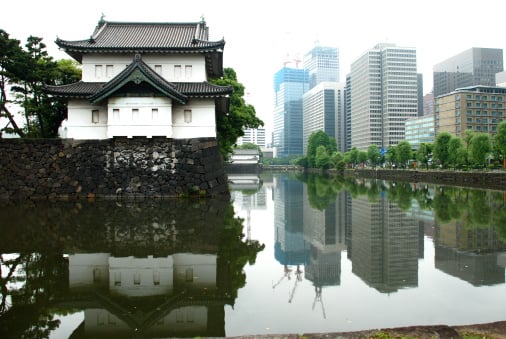Japan’s economy is still troubled, but it is getting better, according to the International Monetary Fund (IMF). After decades of struggle, gross domestic product (GDP) there may begin to improve, due to current government policy. However, the improvement may be no better than 1% per year. Source: Thinkstock
Source: Thinkstock
The IMF report found that Abenomics’ three-pronged strategy of aggressive monetary easing, flexible fiscal policy, and structural reforms constituted a clear break from previous incremental efforts. But, despite initial positive results, the pace of real GDP growth has remained at about 1 percent — similar to the post-bubble period — and deflation risks remain.
“This is partly due to external shocks, including slower global growth, and the collapse in commodity prices” said Kalpana Kochhar, Deputy Director in the IMF’s Asia and Pacific Department, and head of the mission that conducted the assessment.
In addition, the negative impact of the consumption tax rate hike in 2014 lasted longer than expected, but structural impediments have also played a role, including sluggish wage growth, production increasingly moving to other countries through foreign direct investment, and headwinds from an aging and declining population
The growth of the Japanese economy will still lag the other largest economies in the world. U.S. GDP is expected to rise by 2% this year, before another bump in 2016. China’s economy has slowed, but it is expected to expand 7% in 2015. Germany’s GDP is surging at a better rate than that of the United States.
Production and wage improvement was the key to Japan’s recovery, according to IMF officials:
The economy is projected to grow by 0.8 and 1.2 percent in 2015 and 2016, provided higher real wages support consumption, and business investment rises on the back of lower production costs from declining oil prices, record-high corporate profits, ongoing corporate governance reforms, and the abundant availability of credit.
“However, risks are elevated and clearly to the downside, including from a disappointing outcome of the Shunto wage negotiations, and weaker spending of the oil windfall,” said Kalpana Kochhar, Deputy Director in the IMF’s Asia and Pacific Department
Japan also faces short-term risks from lower-than-expected growth in China and the United States, and possible yen appreciation in the event of global financial turbulence given its status as a safe-haven currency.
The recovery, therefore, could move off track and Japan’s economy return to the stagnation that reaches back into the 20th century.
ALSO READ: Countries With the Widest Gap Between the Rich and the Poor
Sponsored: Want to Retire Early? Here’s a Great First Step
Want retirement to come a few years earlier than you’d planned? Or are you ready to retire now, but want an extra set of eyes on your finances?
Now you can speak with up to 3 financial experts in your area for FREE. By simply clicking here you can begin to match with financial professionals who can help you build your plan to retire early. And the best part? The first conversation with them is free.
Click here to match with up to 3 financial pros who would be excited to help you make financial decisions.
Thank you for reading! Have some feedback for us?
Contact the 24/7 Wall St. editorial team.



